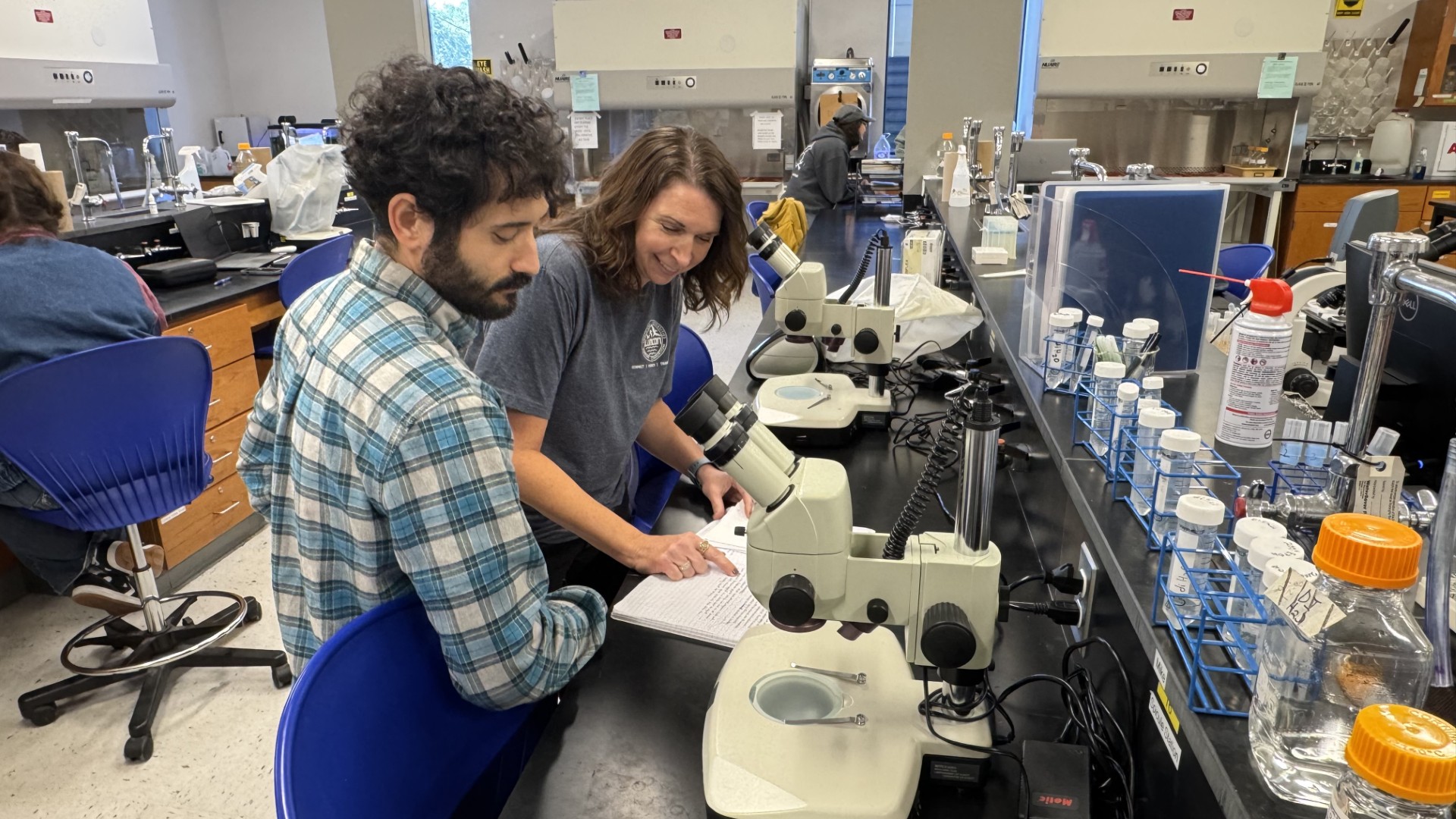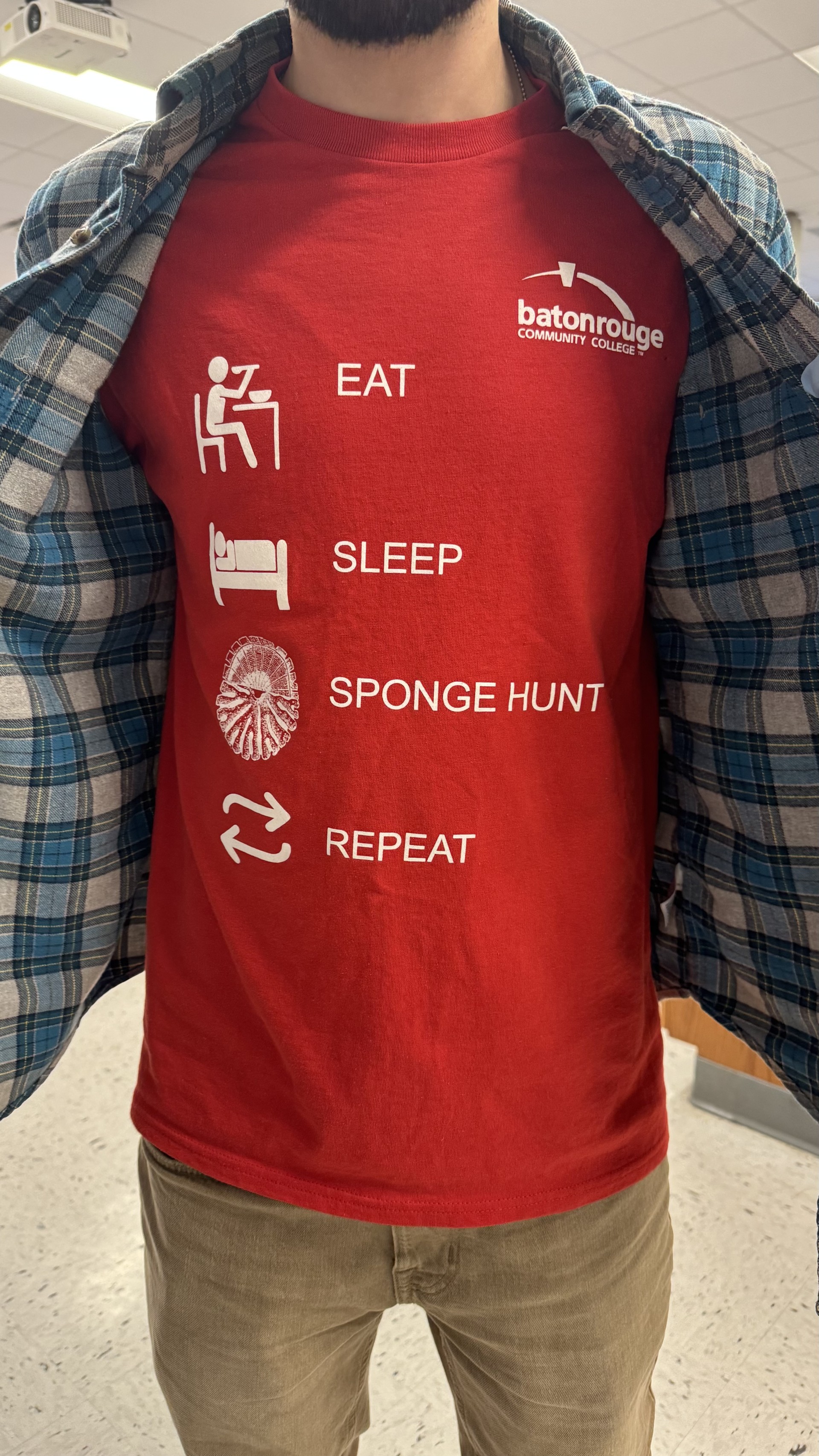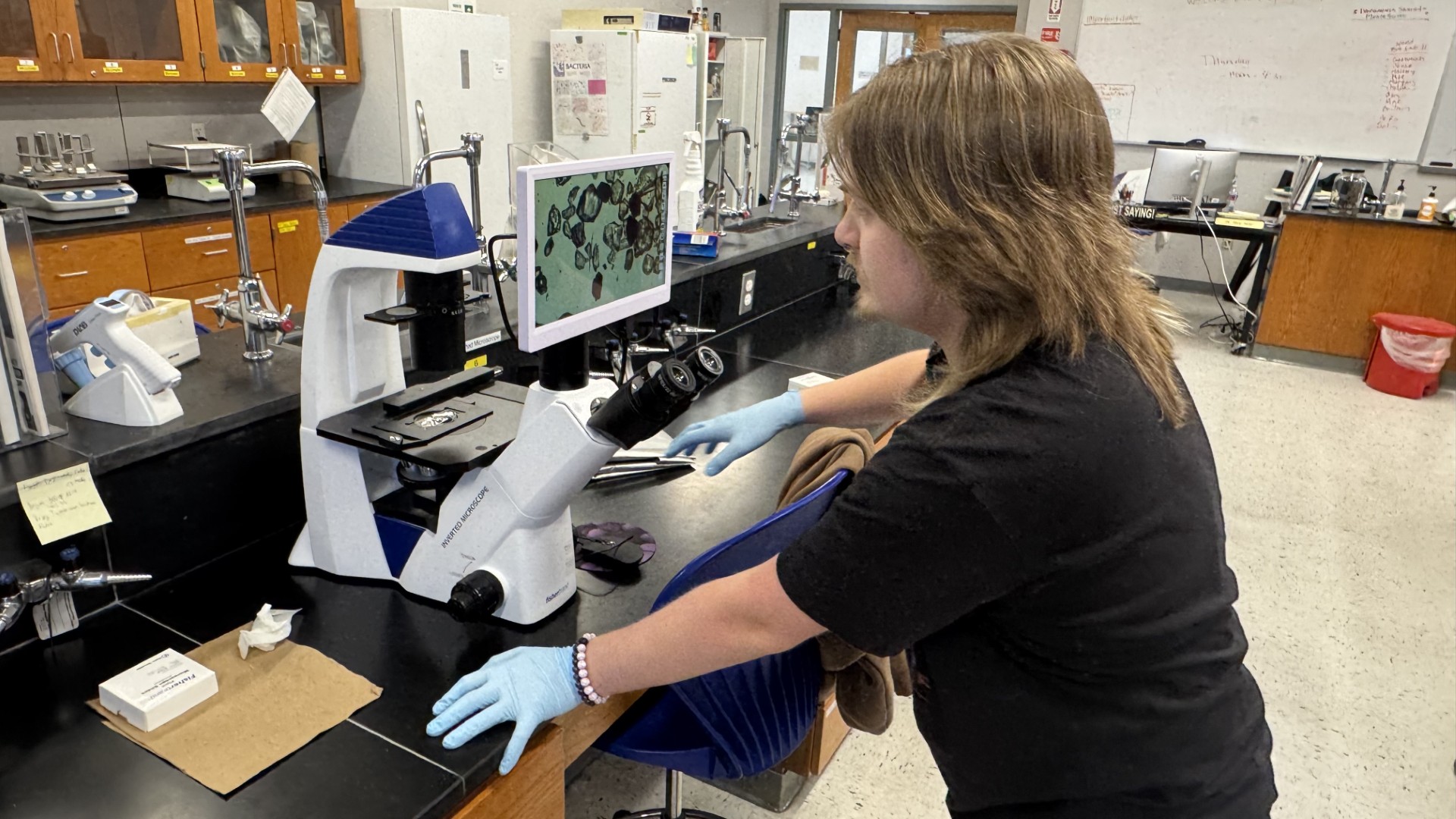Baton Rouge Community College getting international recognition for researching an ecologically important invertebrate; TEDx Talk Nov. 13

When thinking of Louisiana waterways, most people think of alligators or crawfish. But Baton Rouge Community College is a national leader in the study of an animal that plays a critical role in shaping our ecosystem – the freshwater sponge.
Never heard of it? Mary Miller, a researcher and faculty member at BRCC, wants to change that.
From presenting research in Portugal, to giving a TEDx Talk later this month, to multi-state expeditions to collect and study sponges, Miller and her team of student researchers are putting BRCC on the national and international stage.
Miller is one of only a few sponge taxonomists in the U.S., and BRCC is one of the only community colleges in the nation taking part in this type of research at this magnitude. It’s also rare for community colleges to offer research opportunities to undergraduate students, but Miller currently has a team of 14 students working with her. They call themselves The Sponge Hunters.
Miller has been invited to give a TEDx Talk on Nov. 13 at the Manship Theatre in downtown Baton Rouge to showcase freshwater sponges and their role in the environment. Her talk will be part of this year’s TEDx Baton Rouge event on climate solutions – one of only two such events in the nation and 19 worldwide. Information and tickets are available at TEDx Baton Rouge.
The TED Talk comes on the heels of Miller and two of her students, Nicholas Teegarden and Geremiah Perkins, presenting their research in Vila do Conde, Portugal, at the recent World Sponge Conference. The international conference brings together sponge researchers from around the globe to share their research and collaborate. BRCC was the only community college that presented at the conference.
“We are the leading community college in this field,” Miller said. “It is very rare to go to a conference and see another community college presenting or even attending. When our students get to showcase their research at national and international conferences like the one in Portugal, it gives them a chance to see how their research can really impact the world. This is an incredible opportunity for BRCC students.”
Most people who know about aquatic sponges tend to be more familiar with the ones in the ocean – marine sponges. But Louisiana’s swamps, rivers and streams are home to an abundance of freshwater sponges that may hold the secrets to our waterways. Miller and her students are trying to uncover those secrets.
For instance, in some locations, freshwater sponges are abundant, and in other places, nonexistent. Miller wants to know why. Their presence, or their absence, may tell us a lot about a certain body of water.
In 2019, Miller developed The Louisiana Freshwater Sponge Project to map all of the waterways in the state that contain freshwater sponges. This means that she and her students put on knee boots and wade through all kinds of water bodies to hunt sponges. The Sponge Hunters collect sponge samples, along with water and sediment samples from the waterways where the sponges were found. Everything is mapped, tested, examined under microscopes, and logged.
Sponges can be an indicator of clean water and a healthy ecosystem, so studying soil and water samples from a certain location is just as critical as collecting and logging the types of sponges that are present. There are approximately 28 species of freshwater sponges in the U.S., and 15 of those have been found in Louisiana.
Part of Miller’s research involves a comparison study to similar work done more than 50 years ago by researcher Michael Poirrier. When Poirrier passed away, his family donated his collection of some 400 sponge samples and all his research to Miller and her project. Miller has found that there are fewer sponges today in Louisiana waters then there were 50 years ago. Things like pollution or heavy metals in water may be factors, and Miller and her students are trying to learn all they can about what the presence or decreased presence of sponges signifies.
“Freshwater sponges are key players in the water system,” Miller said. “We are trying to further understand how they shape our ecosystem. A healthy water system generally has a lot of biodiversity, so we want to know why we are seeing a decrease in the number of sponges and what that means.”
Miller and The Louisiana Freshwater Sponge Project now work in conjunction with researcher Stephanie Archer at Louisiana Universities Marine Consortium (LUMCON) in Chauvin, La., which enables other state colleges and universities to participate in related research. LUMCON studies coastal and ocean issues important to Louisiana. Poirrier’s sponge collection is now on display at Blue Works Museum at the Houma LUMCON site. Through other partnerships with Phoebe Zito at University of New Orleans, and Malcolm Hill at Bates College in Maine, Miller is broadening the scope of the project to extend the breadth of research offered to students at BRCC.
To date, Miller has garnered about $2 million in grants to support her research – also something that is rare at community colleges.
Along with searching for sponges across Louisiana, Miller and her team have also searched waterways in Texas, Arkansas and Florida. This month, The Sponge Hunters will conduct the first-ever sponge hunt in the state of Mississippi. “There is no previous sponge data at all in Mississippi,” Miller said. “As one of my students said, this will be our ‘maiden voyage’ to Mississippi.”
Since Miller began The Louisiana Freshwater Sponge Project, she has had a total of 61 student researchers who have worked with her. Many have gone on to get degrees in related fields to continue ecological and environmental work. Every other year, Miller holds a “sponge reunion” for all her former and current student researchers. She is always amazed at the turnout and the conversations The Sponge Hunters have with each other at these gatherings. She said the way the students inspire each other and learn from each other underscores the value of undergraduate student research.
“Research impacts student success in a way that is unmatched by any other experience. It can be life changing, and that is exactly why I wanted to bring student research to BRCC,” she said.

